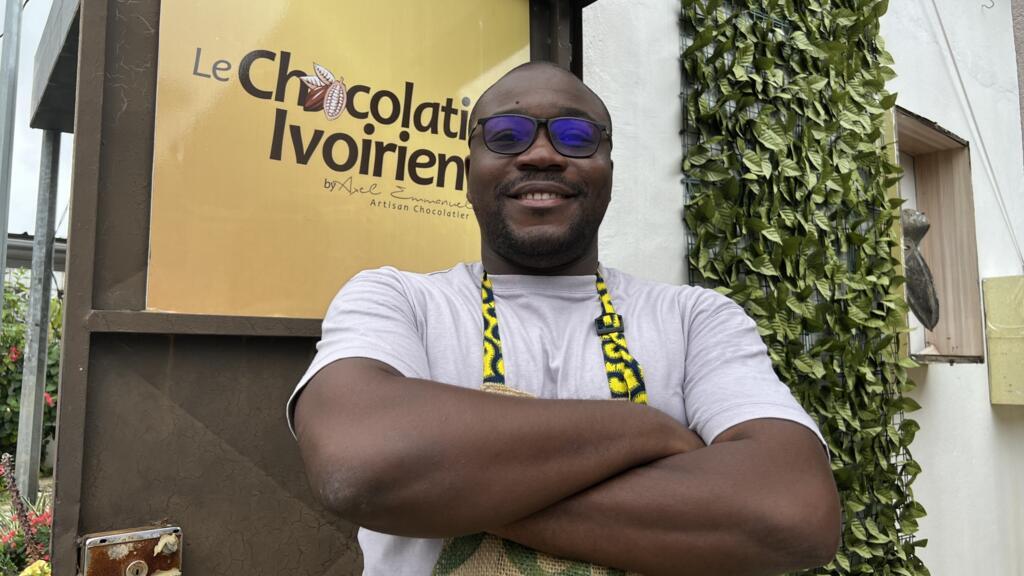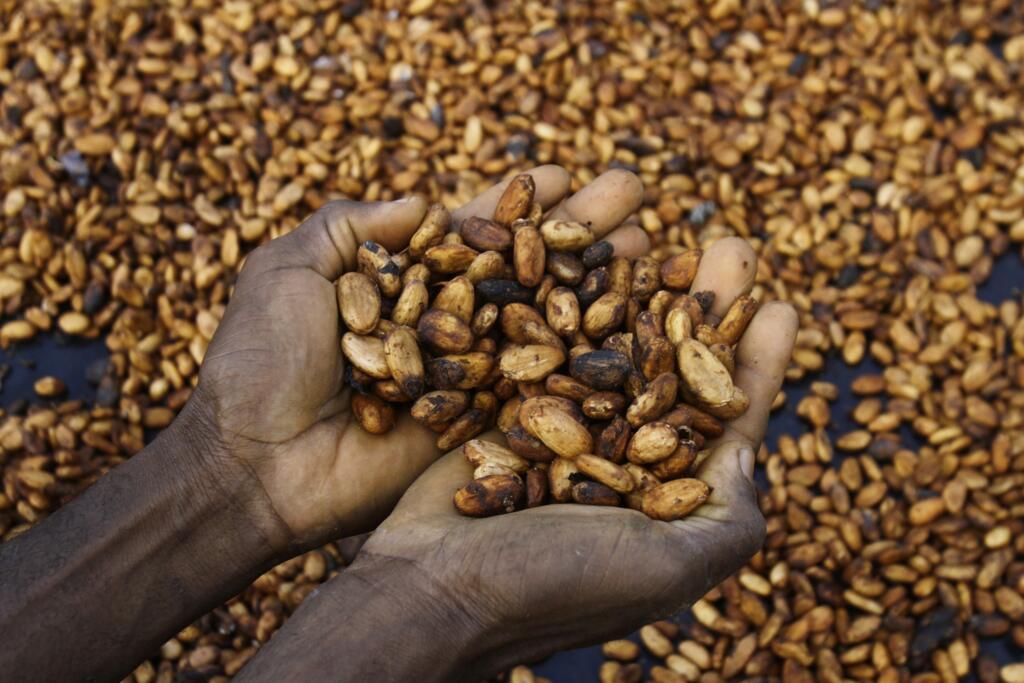
Abidjan, Côte d'Ivoire – Côte d’Ivoire is the world's main source of cocoa beans, yet for decades, Ivorians rarely tasted chocolate made from their own crops. Determined to change that, Axel Emmanuel Gbaou founded his own business transforming locally grown cocoa into chocolate – and helping farmers to master more of the lucrative steps from bean to bar.
Speaking to RFI from his workshop in Cocody, an upmarket suburb of Abidjan, Gbaou recalls that before he started his venture 10 years ago, "there wasn’t a single chocolate bar made in Côte d’Ivoire".
Today, his brand Le Chocolatier Ivoirien sells its chocolates both abroad and, increasingly, at home.

From bean to bar
The former banker switched careers after noticing "this great absurdity" that the world's leading cocoa producer sent the vast majority of its beans to be turned into chocolate abroad.
"We have two million farmers, 3,000 cooperatives and there was no chocolate brand in the supermarkets," he told RFI.
Côte d’Ivoire’s cocoa industry lies at the heart of its economy, shaping both export revenues and rural livelihoods. The country supplies roughly 35 to 45 percent of global demand, with production hitting nearly 2.4 million tonnes in 2023.
Most of the beans are grown by smallholder farmers who harvest them, dry them and sell them to traders for export, in many cases earning less than a dollar a day.

Cocoa processing, which adds value, mainly occurs once the beans have left the country. The most lucrative step – making chocolate products – typically happens in Europe, where the world's biggest multinationals have their manufacturing hubs.
Chocolate and rice among key EU imports facing climate threats
Gbaou wants to help locals move higher up in the value chain. Since starting his company in 2015, he has trained more than 2,000 women farmers to meet organic and fair trade standards, process the raw beans or even make their own chocolate.
These planters supply him with sustainably grown beans. "And we have our own chocolate bars now, with our African fabric and packaging."

Adapted to local market
At first, Gbaou sold mainly to corporate customers. "In the beginning, we were making chocolate for companies, like Air France, and after that I decided that I had to make our own chocolate bar," he says.
But it wasn't an obvious market. "People say that it was not in the habit of Ivorians to have chocolate, to eat chocolate," says Gbaou. Price was also a barrier.
Alongside his more expensive offerings, he came up with a chocolate bar, Kimbo, that retails for the equivalent of just under €1. "And people are now buying it here, but also in France, in other countries, in Congo, et cetera. People order it because it's a good price," Gbaou concludes.
Podcast: Inside Côte d’Ivoire’s pivotal election: voices of hope and uncertainty
He says the brand can sell one million chocolate bars each year in Côte d'Ivoire's economic hub Abidjan, home to six million residents. "It is possible because the people buy them here now," he adds.
Gbaou now exports to countries in Africa, Europe and North America.
This weekend he's showcasing his products at the Salon du Chocolat trade fair in Paris – where, in 2022, the International Agricultural Show named his chocolate "Best in the World". This year, Gbaou received two Gourmet Medals at the fair, in the 75% Dark Chocolate with no additives except sugar category, and in the 85% Dark Chocolate one.







